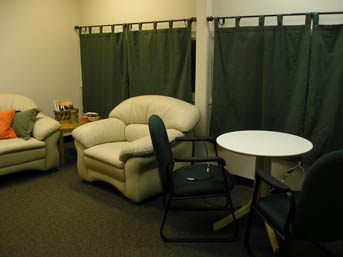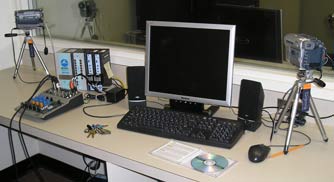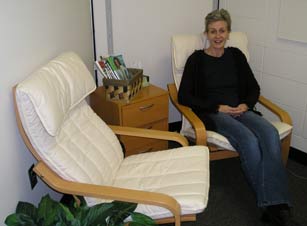  |
|
 |
 |
 |
 |

| In the Family Relations Lab,
we're interested in learning more about how our thoughts and feelings influence the lifelong quality of relationships, and we have a particular interest in relationships between parents and their children. We have explored the rewards and challenges of relationships at all stages of the lifespan. For example, we have done research examining how parents control their negative emotions when in the company of their preschool children (aged 4-5 years), and the effects of parents' emotional expression and control on children's social and emotional development. |
| We
have also looked at how personal characteristics
such as perspective taking (that is, the ability
to 'step into someone else's shoes' and understand
how they feel) and feelings of control can
impact on the quality of helping relationships
between older parents and their adult children
(aged approximately 60 years). |
|
 |
Still other
research has addressed how measures of relationship
quality (for example, the amount of conflict
and how it is resolved) between parents and
their young adult children (aged 18-20 years)
are linked to the expression and control of
feelings, as well as how they think about
particular emotions (for example, do you think
that anger is destructive and feel upset when
it is expressed, or do you think that it is
healthy to express anger, and not feel bothered
by such displays?). |
| |
|
|
Our lab is housed in the newly-built, state-of-the-art Lifespan Development Research Centre.
The lab consists of an office and two interview rooms for data collection. The larger of the two interview rooms has been set up to gather observational data.
|
 |
A third 'control' room was recently re-fitted
with psychophysiological equipment that is well suited to collecting data from dyads and families.
Two digital cameras have been installed
in the control room behind a one-way mirror
(looking into the large interview room)
so that close-up images can be obtained
during interactions. New software developed at Brock allows each person's physiological data to be superimposed on top of their video image so that we can track physiological changes in conjunction with behaviour, as well as verbal and facial expressions.
In terms of physiological data, we have an ECG monitor for the collection of heart rate data, which is used to derive a measure of heart rate variability (now becoming well established in the literature as a measure of one's regulatory ability). We also have a ZCG monitor for measuring cardiac impedance (which takes into account both cardiac output and blood pressure. Impedance is currently being used to assess people's responses to difficult situations - in such circumstances, some individuals feel threatened, while others perceive a challenge. Research is beginning to demonstrate that the more negative physiological profile that is associated with feelings of threat may be associated with unfavourable outcomes, including greater perceptions of stress, feeling that greater effort is required to solve the problem, and beliefs that one has performed more poorly in trying to resolve the issue. Such outcomes may have important implications for the manner in which difficulties that arise within relationships are resolved.
|
 |
 |
| To complement the psychophysiological data being collected in the lab, students and research assistants are also trained in the collection of the stress hormone cortisol. |

|
|
|
 |
 |
|
|
|
|
|

